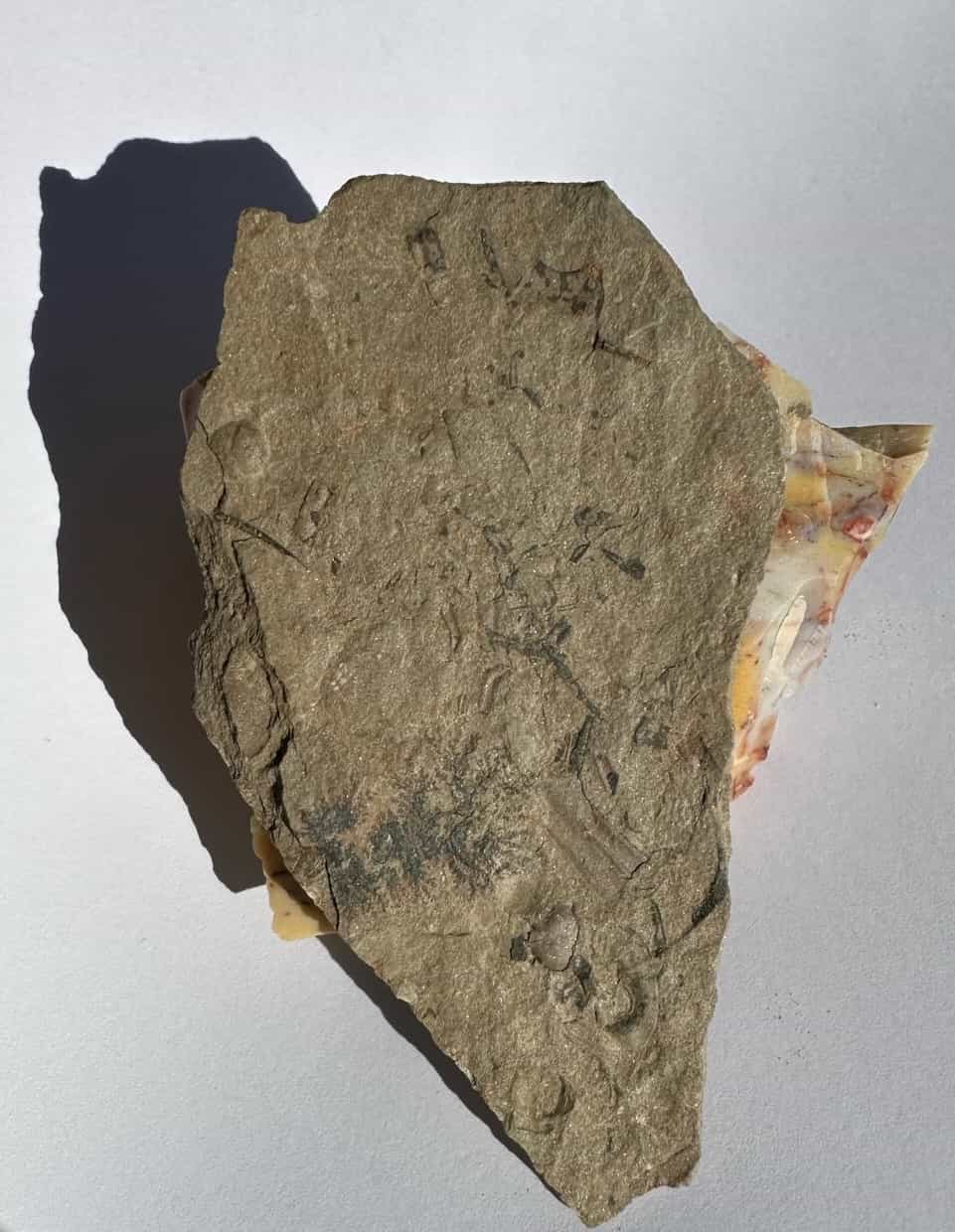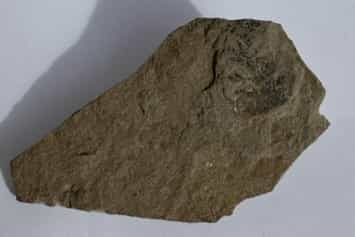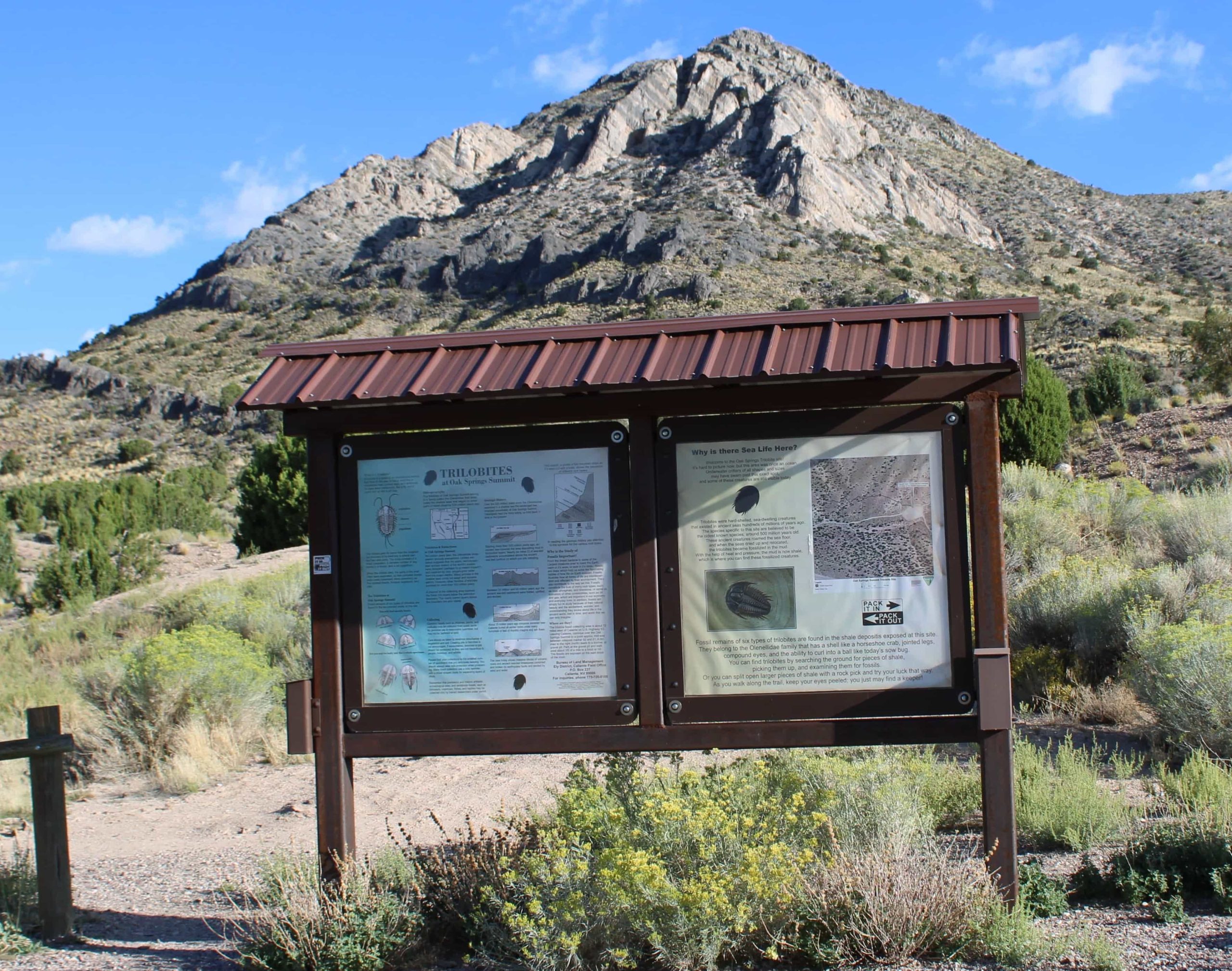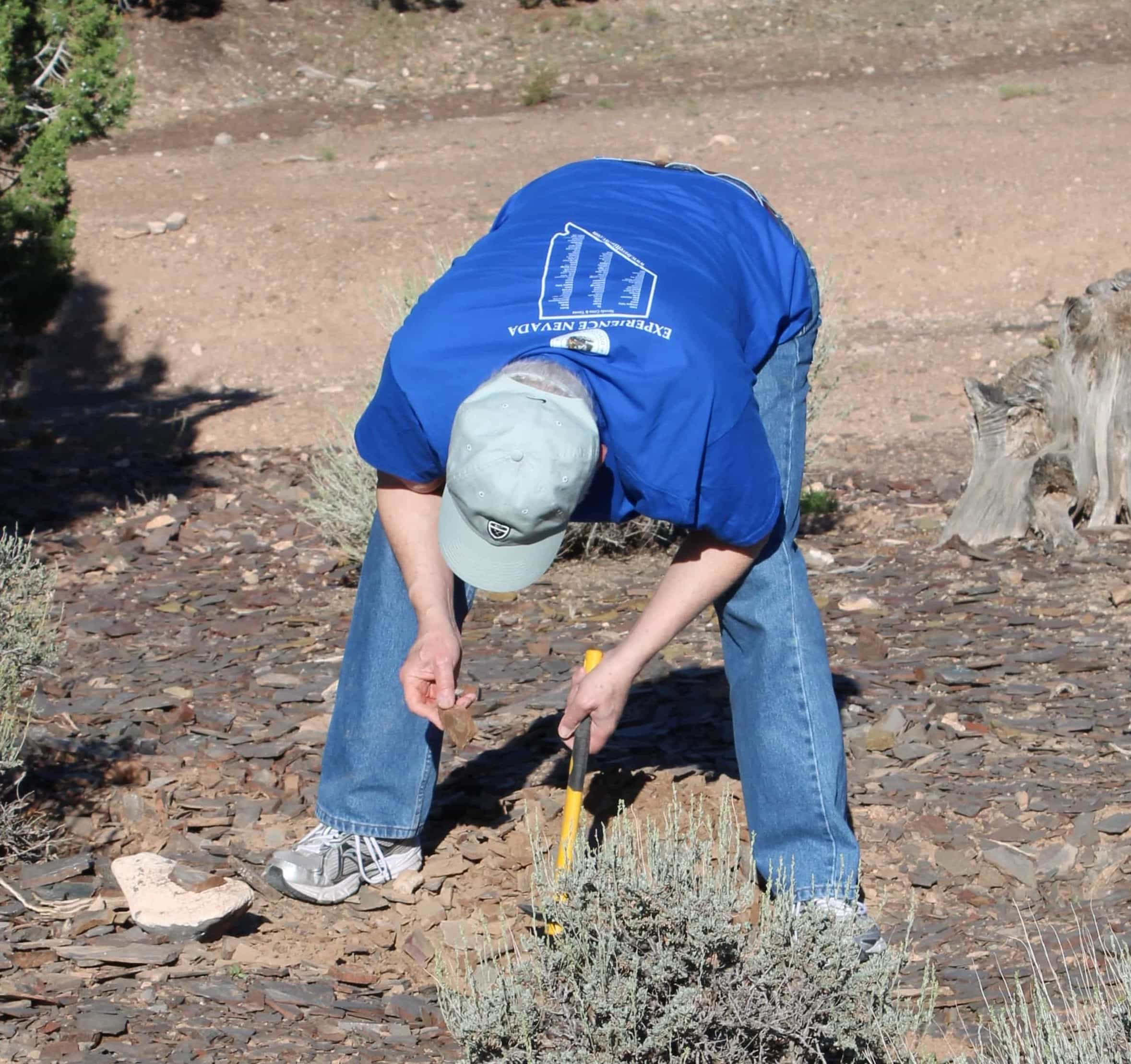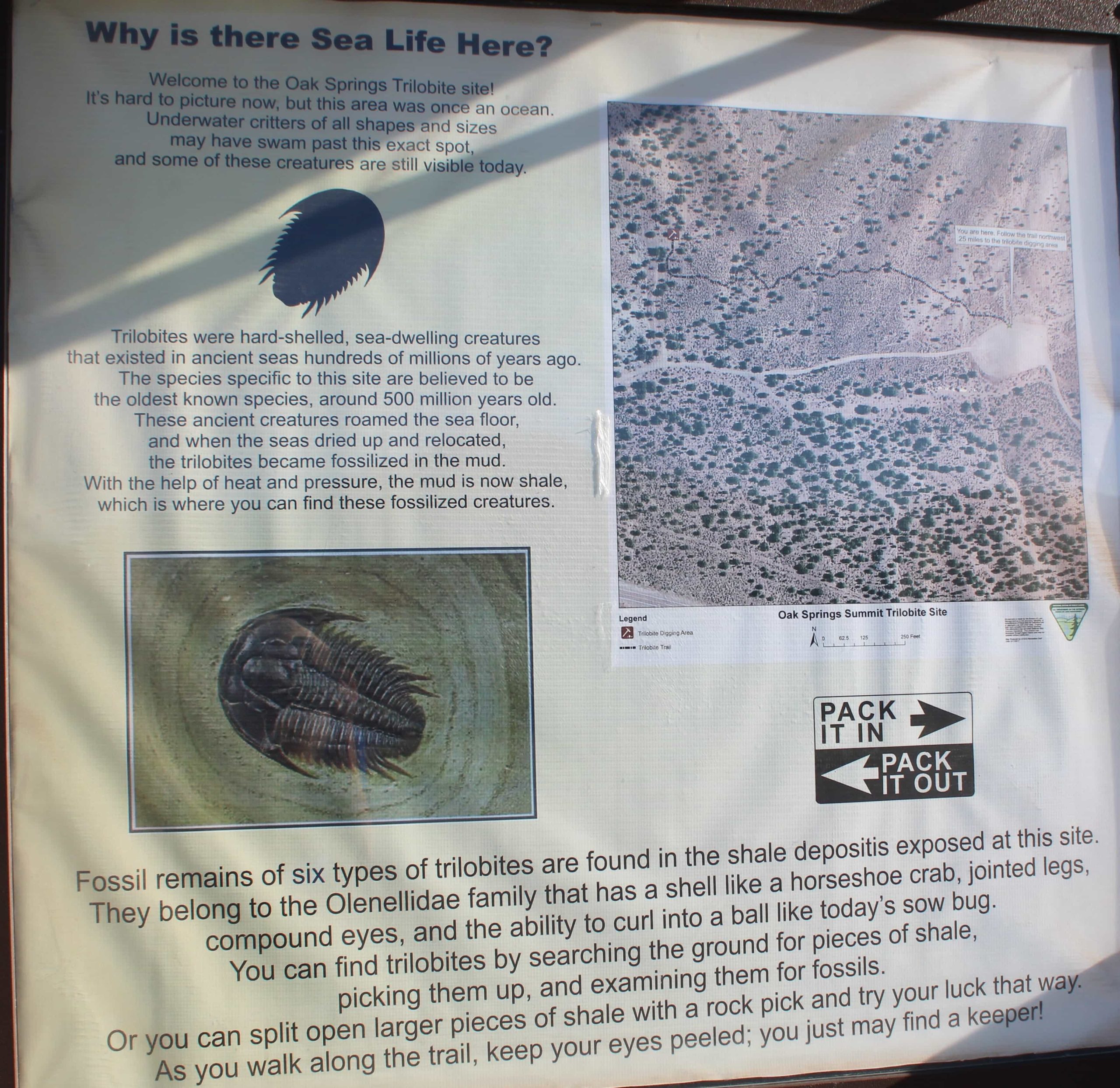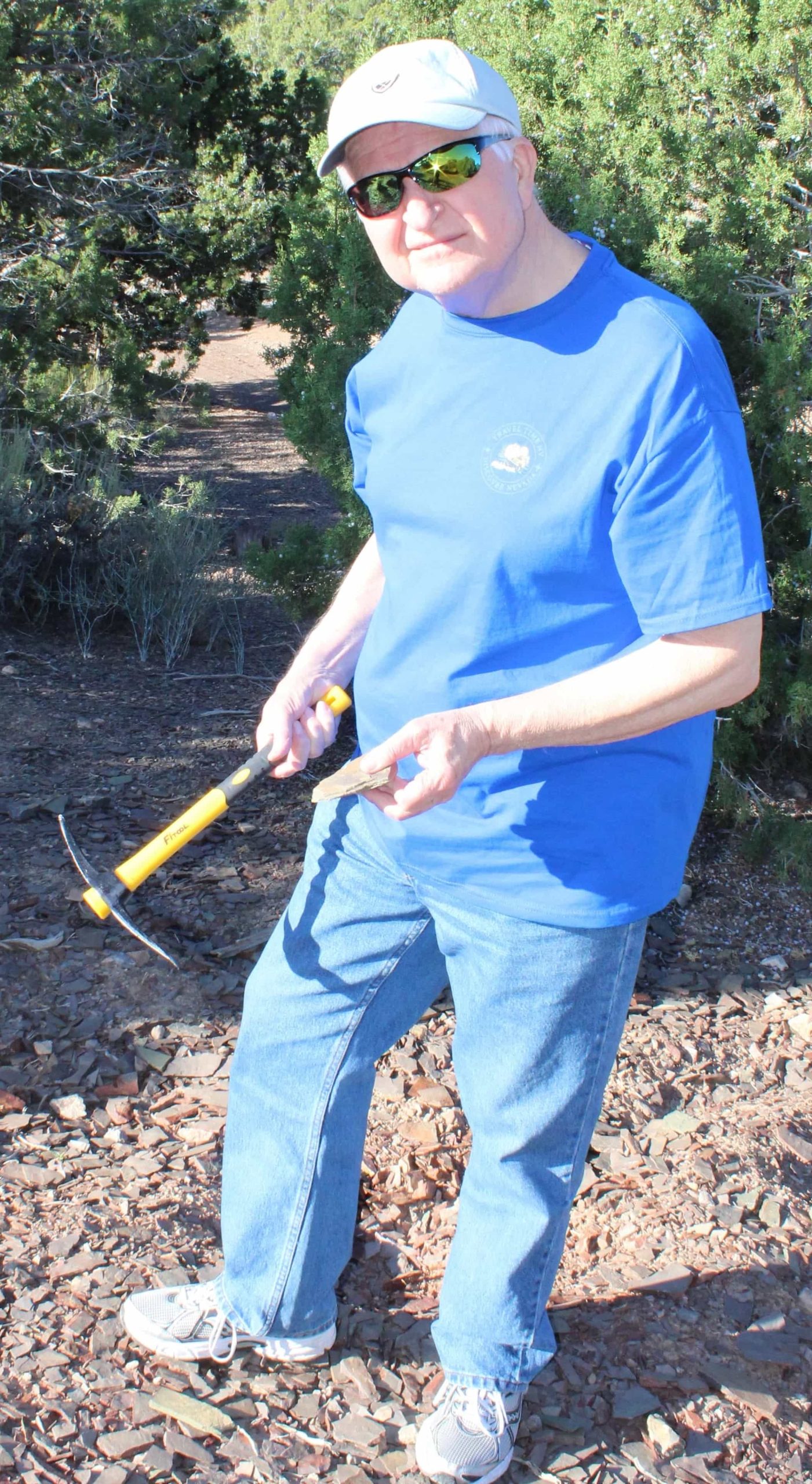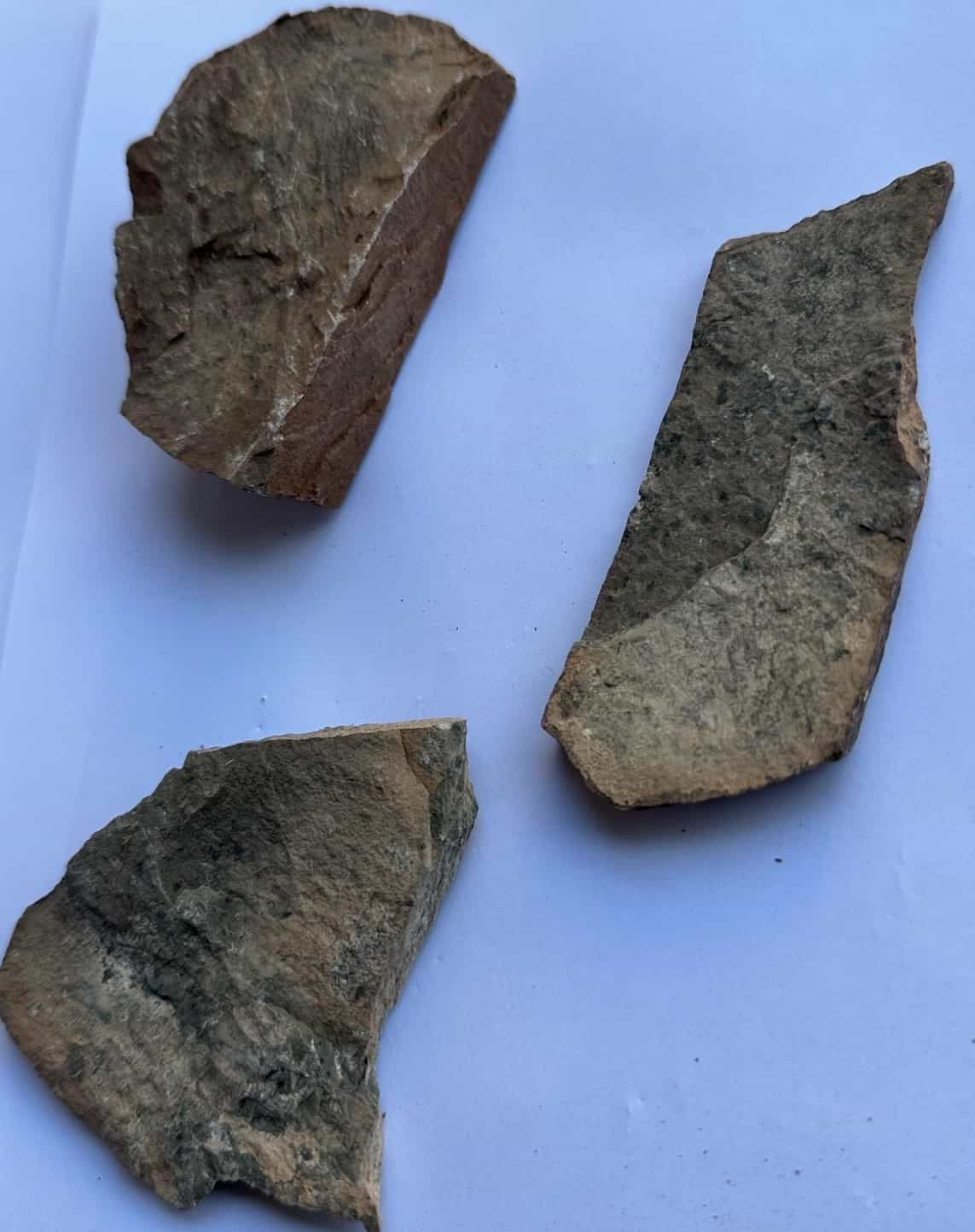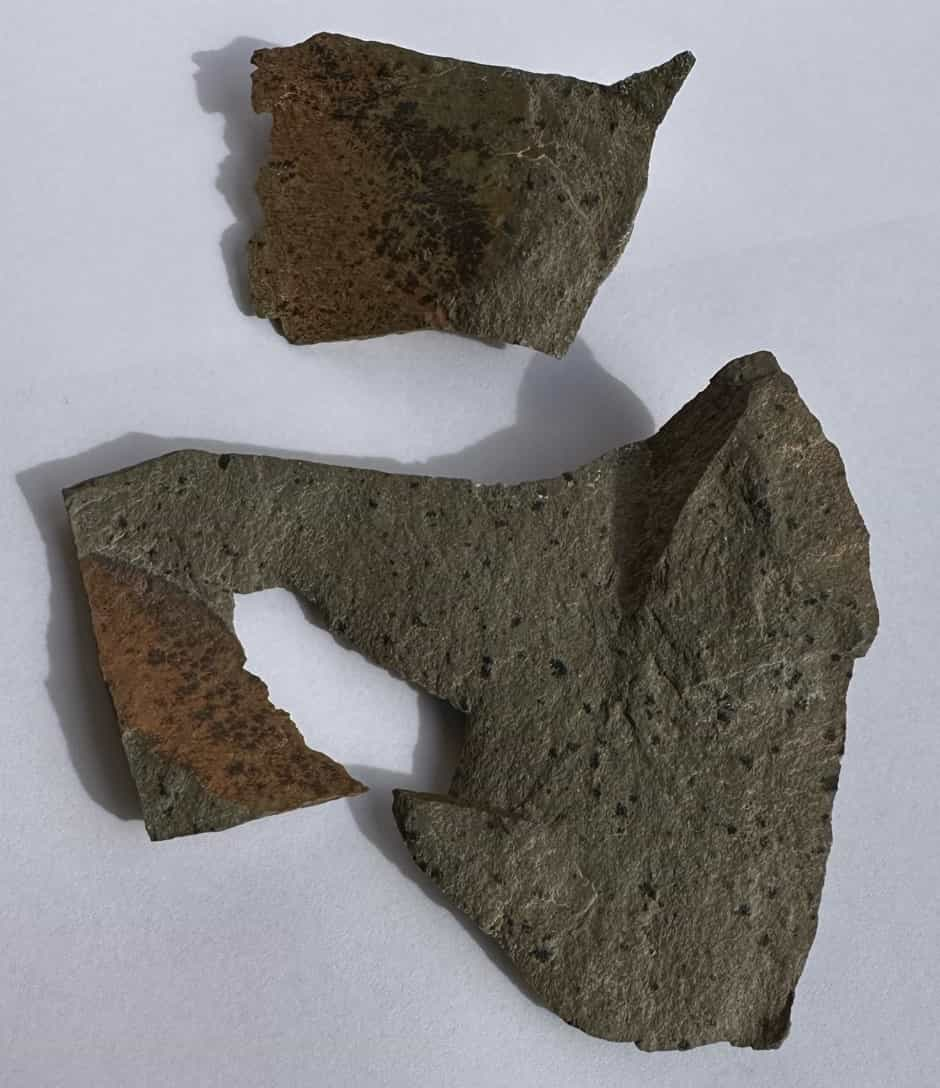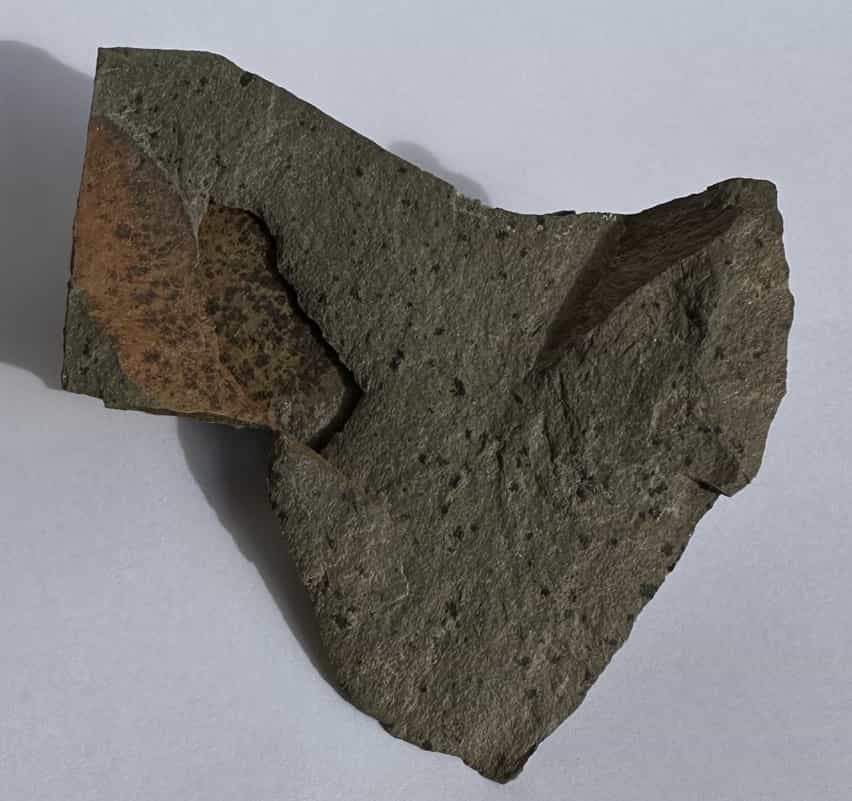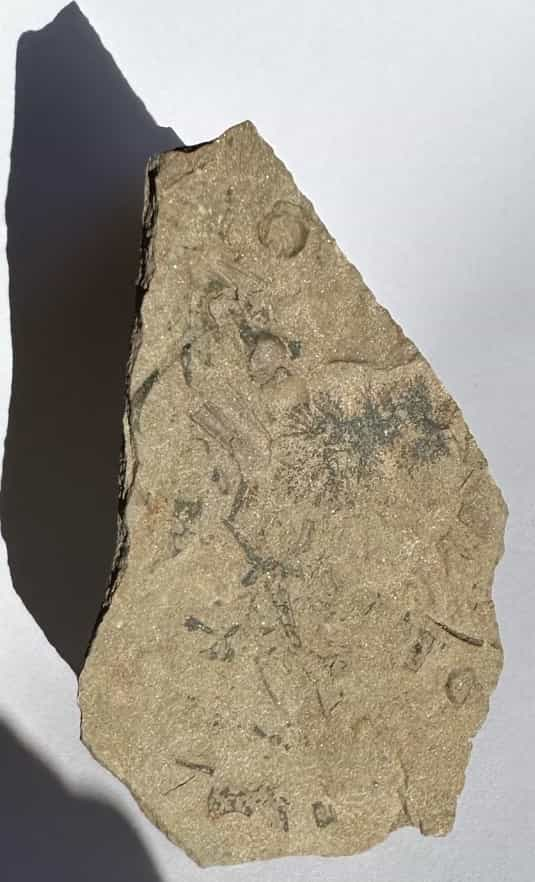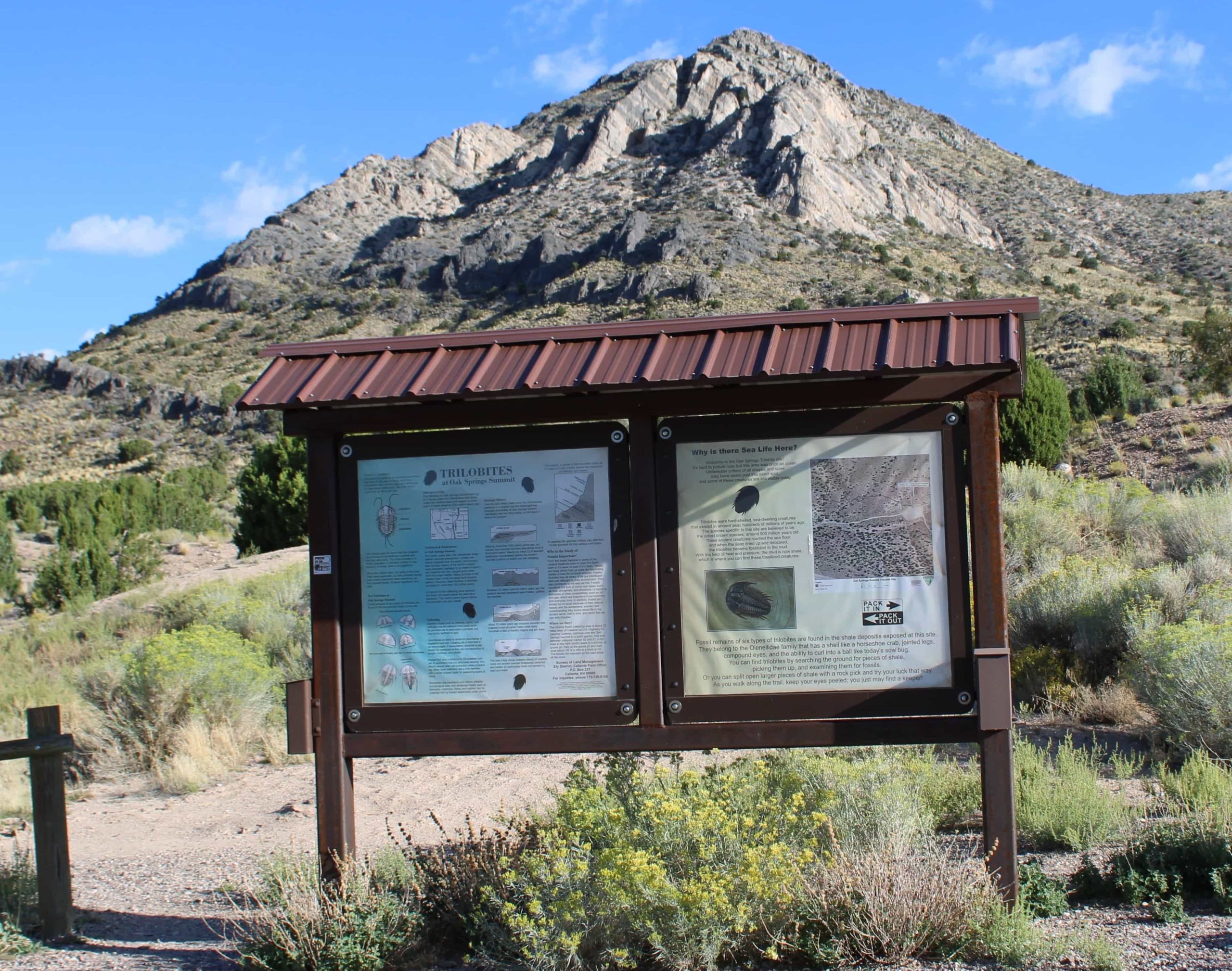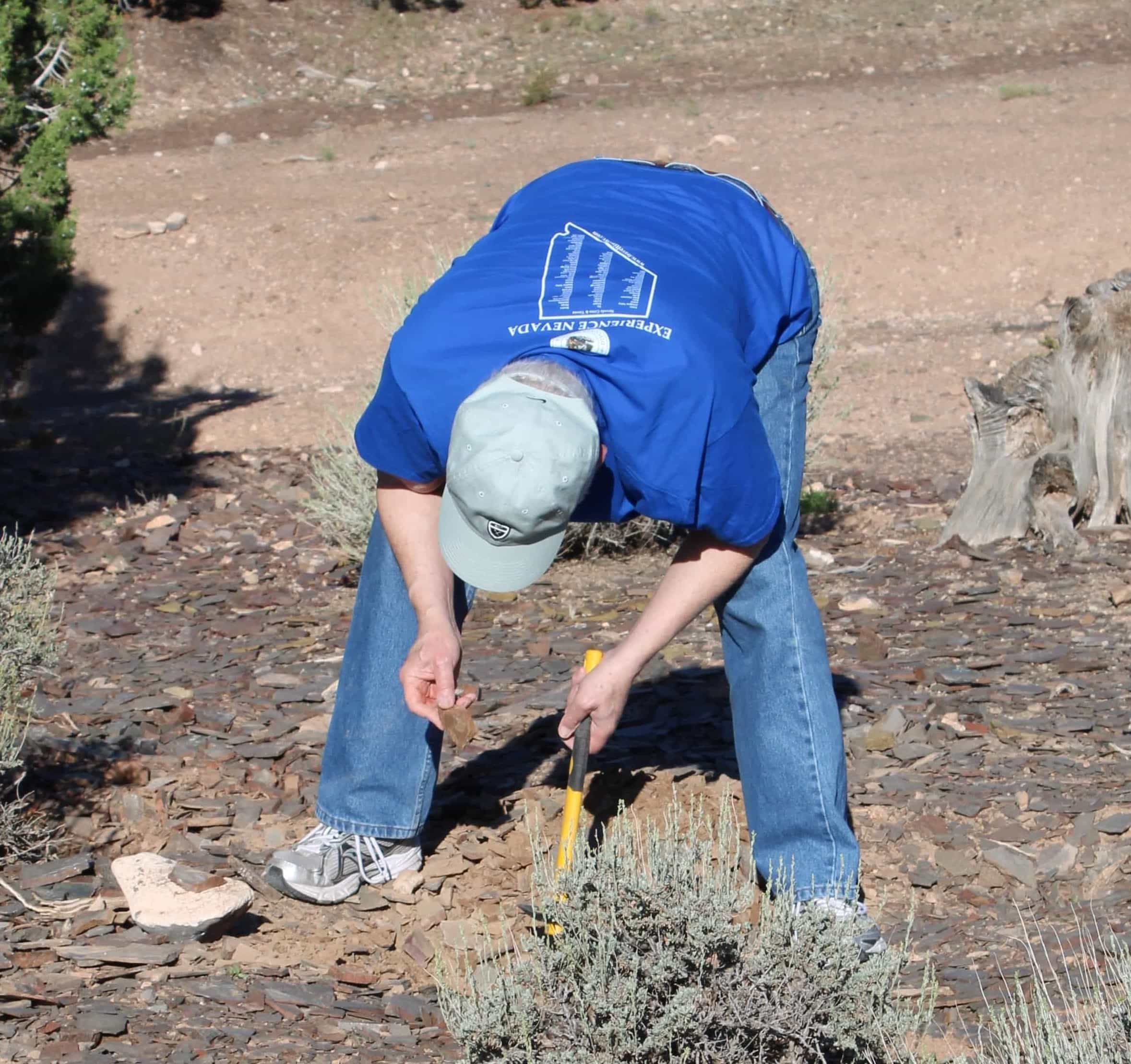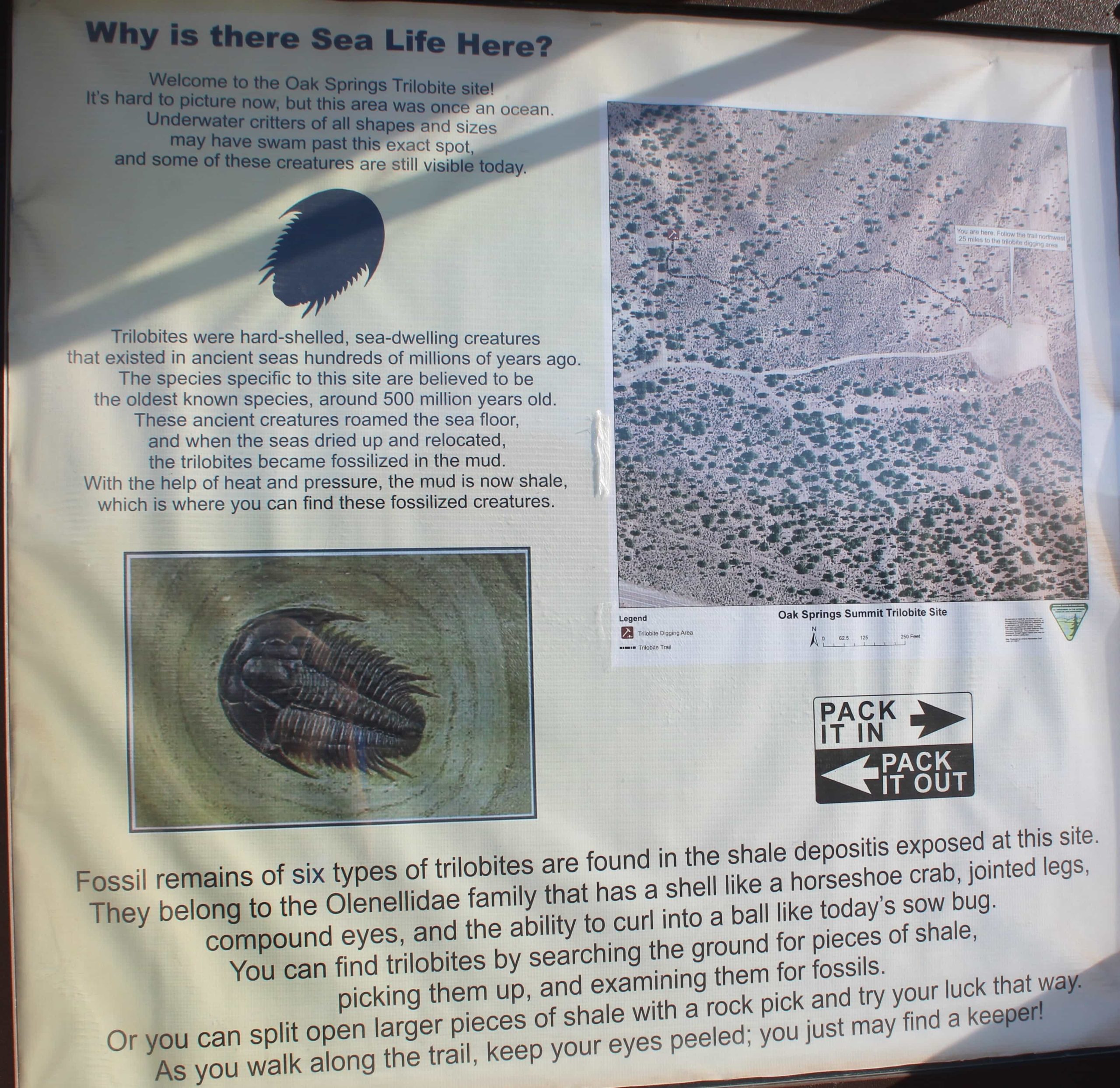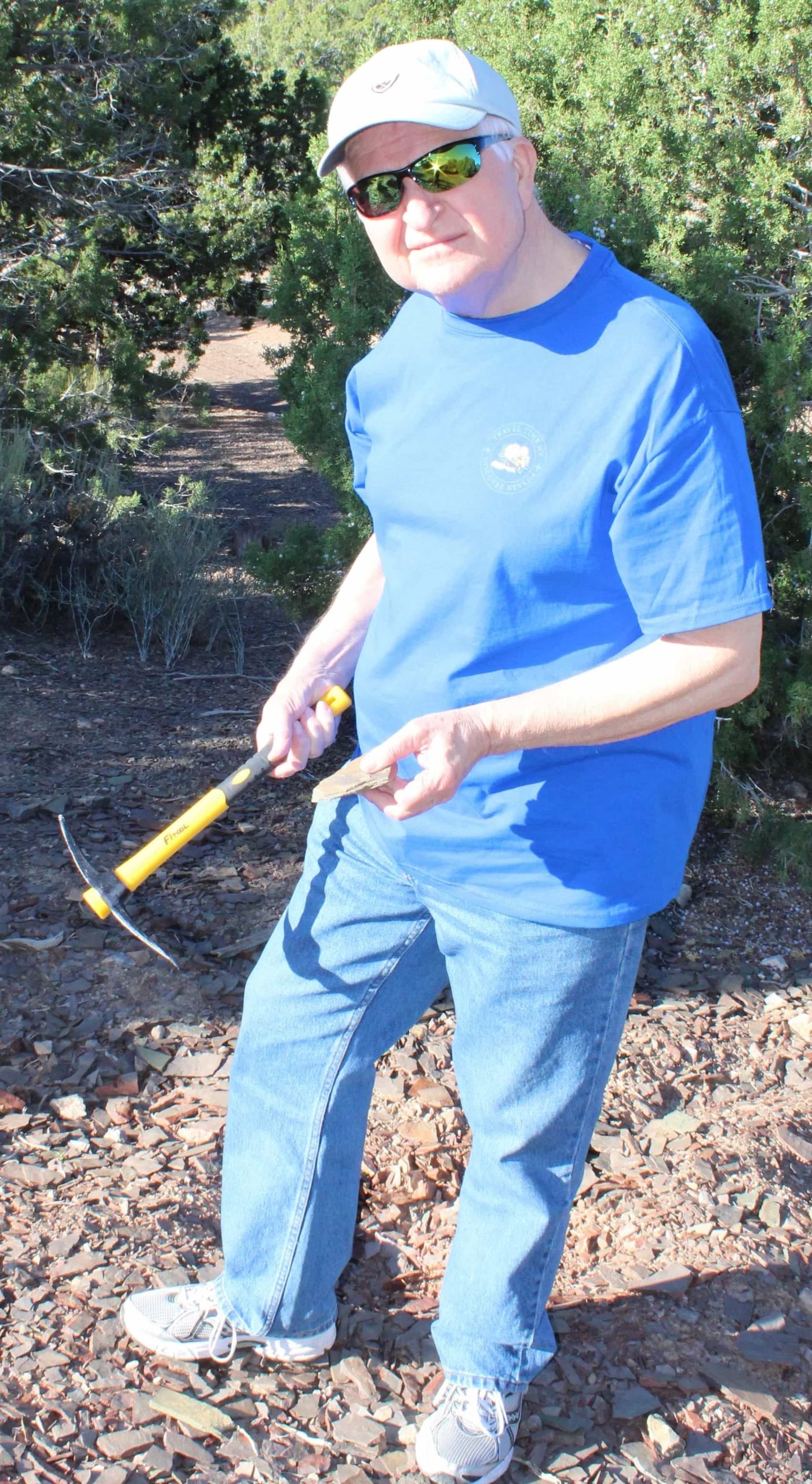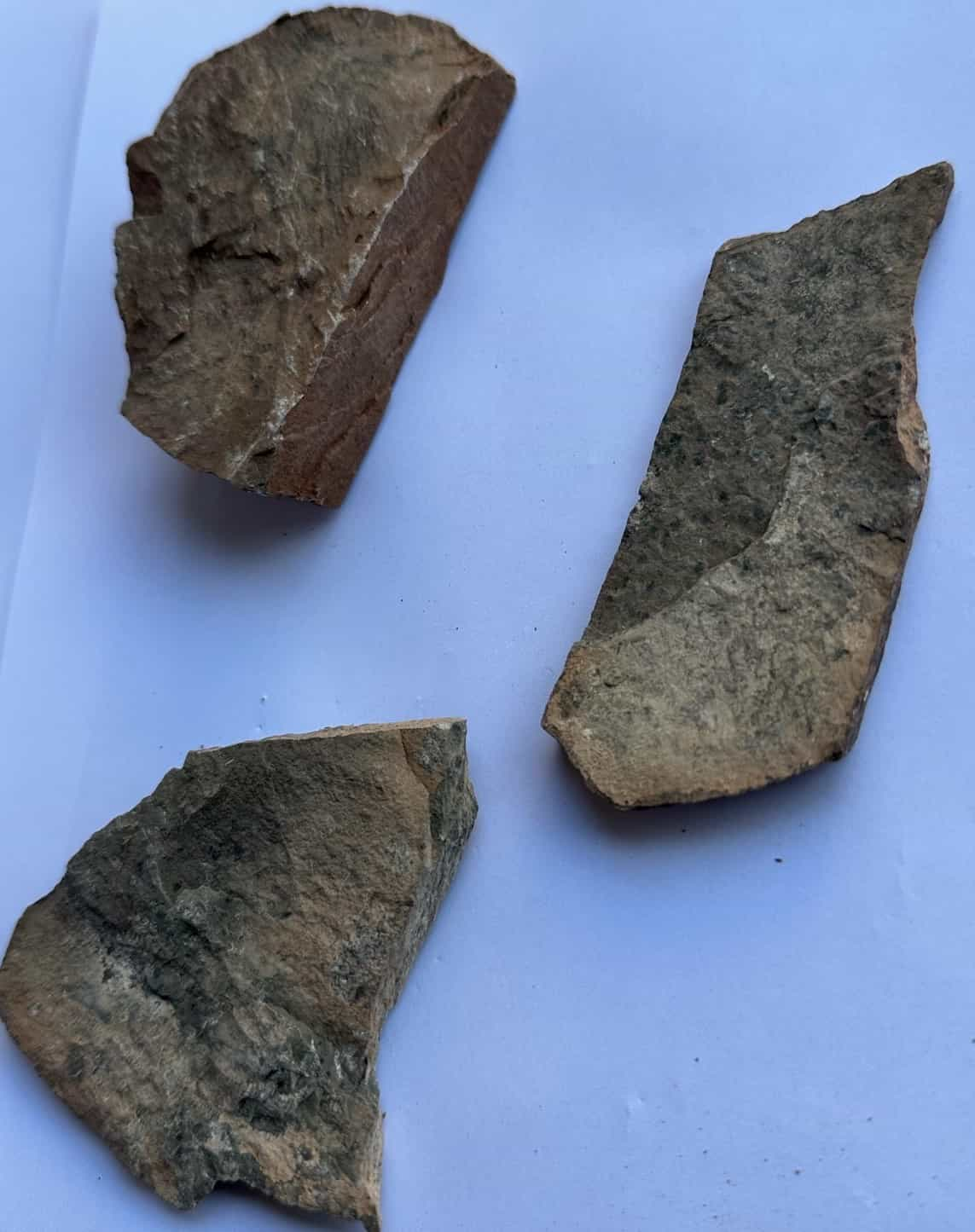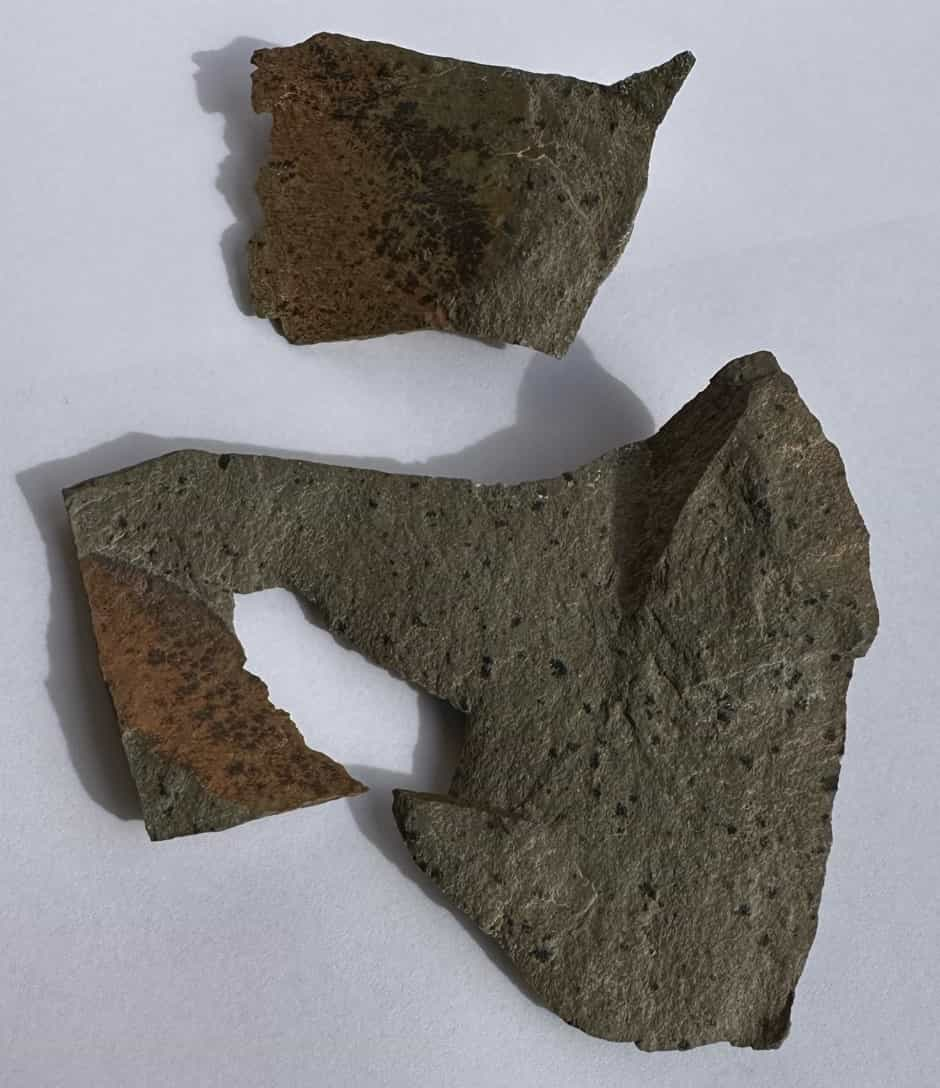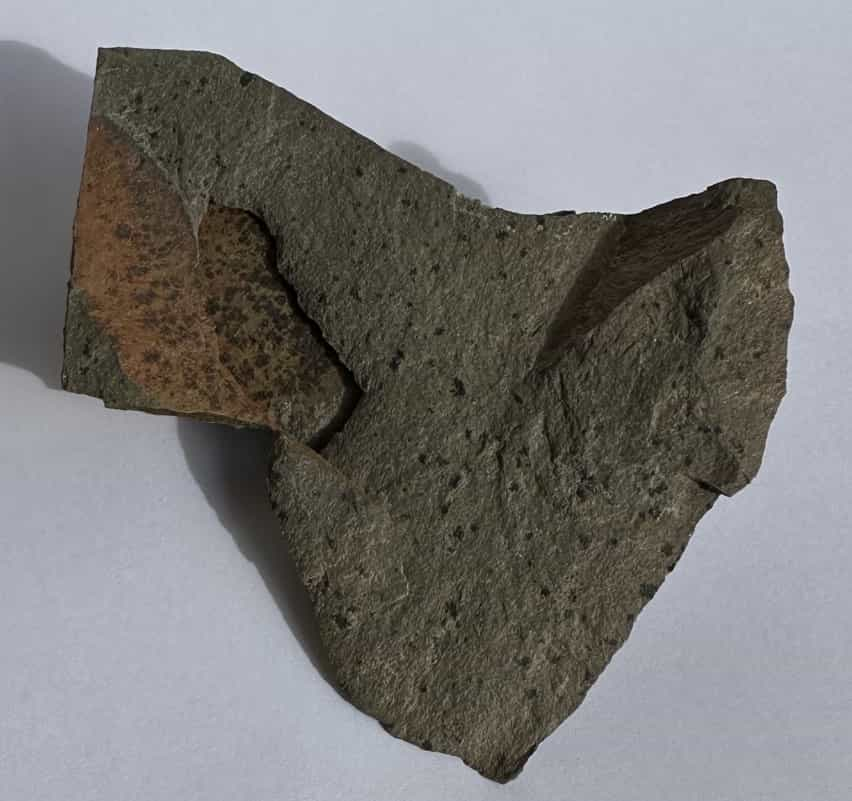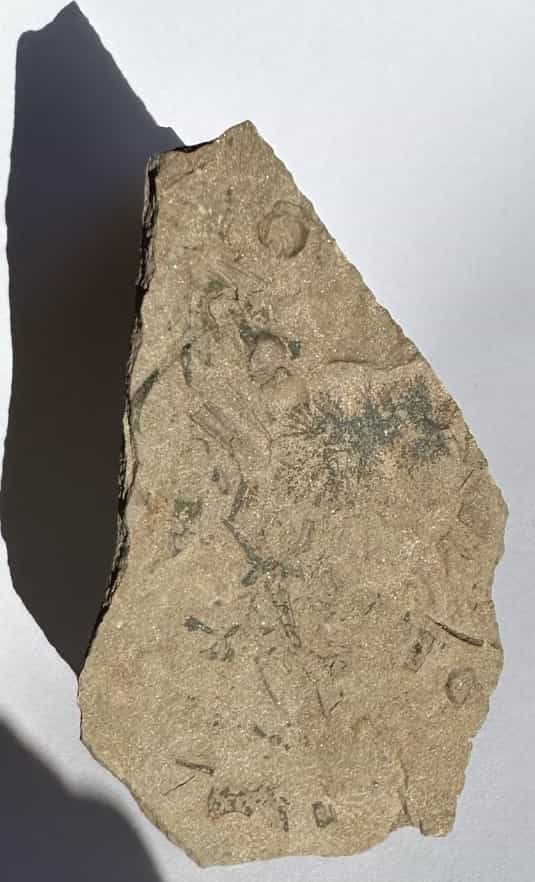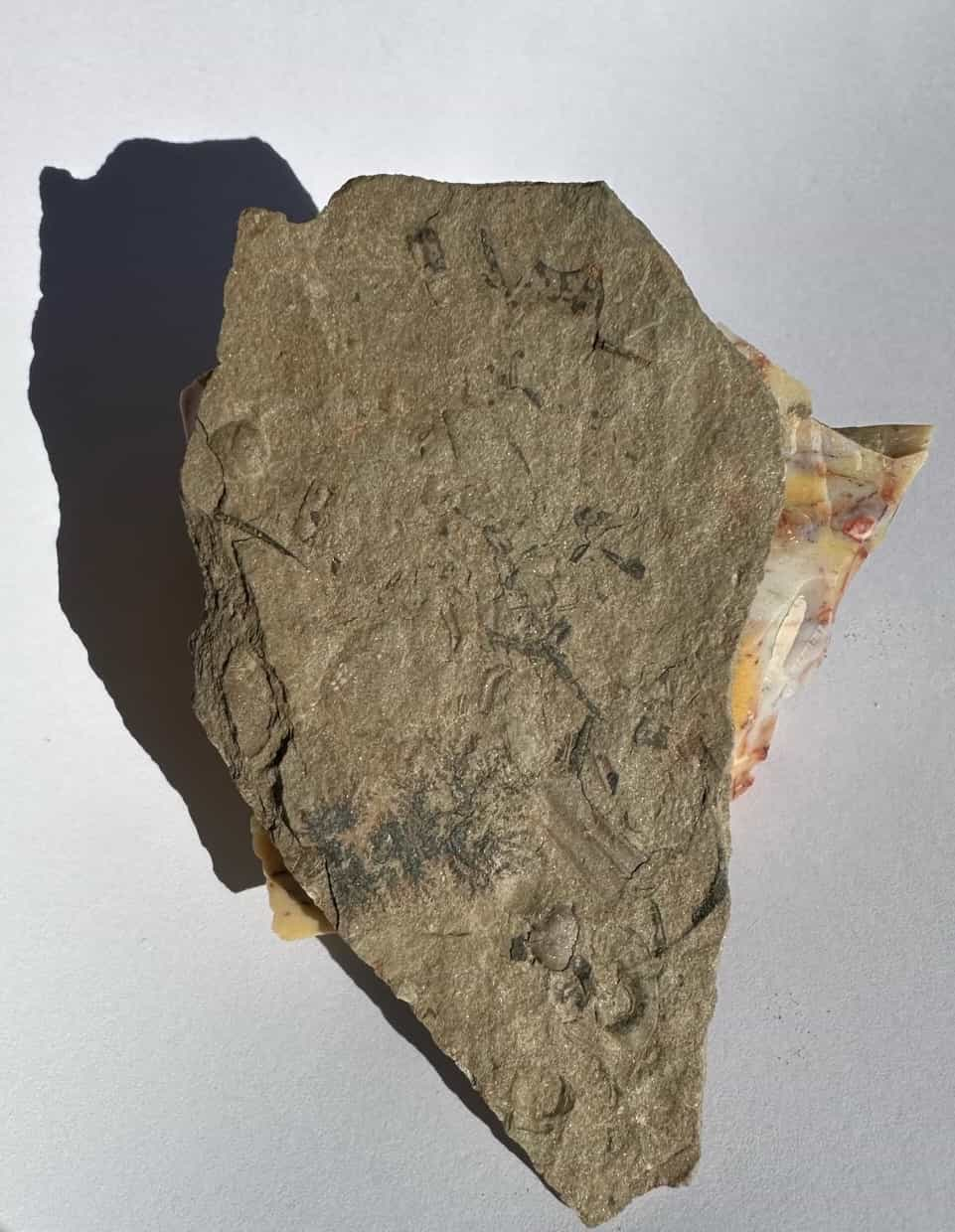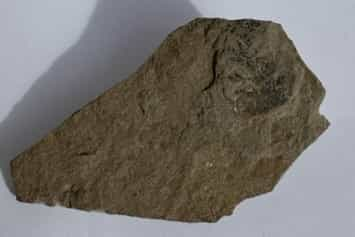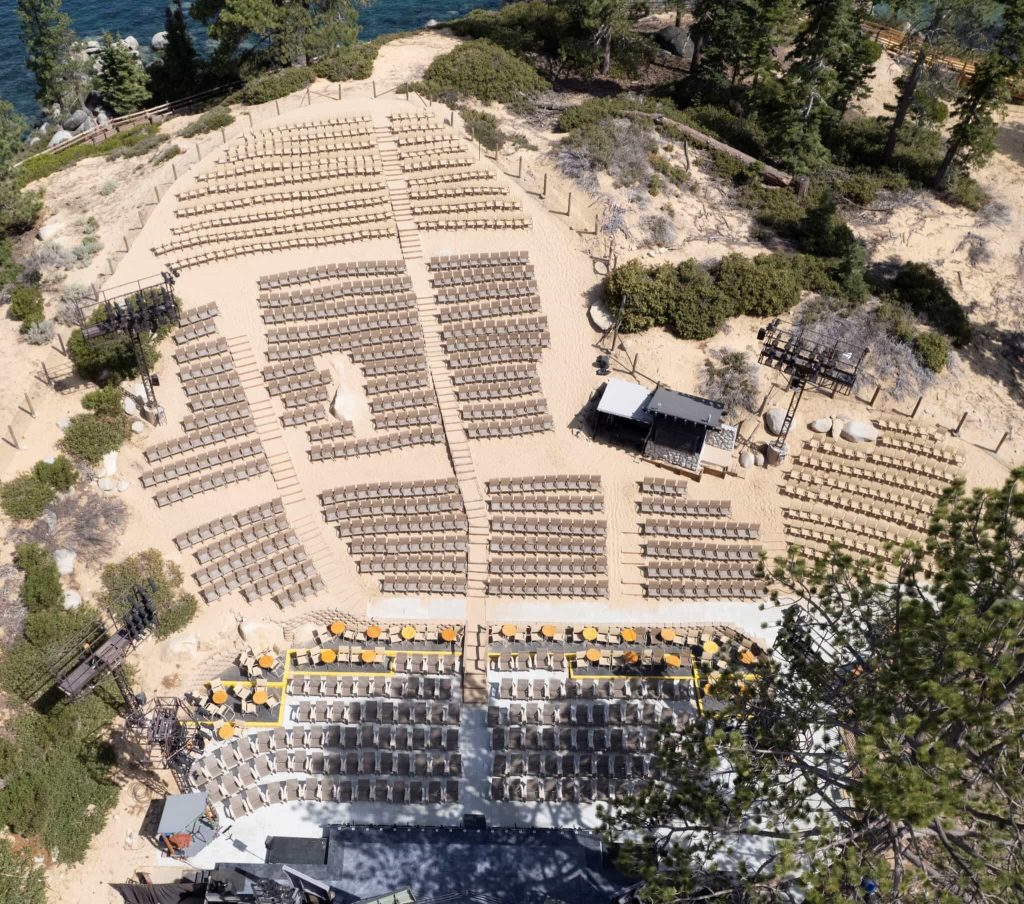Oak Springs Summit Trilobites
Caliente
About
A Trilobite is an invertebrate animal that lived in the sea; it had a shell like a horseshoe crab, jointed legs and antennae. This creature’s eyes were compound like a fly and it could curl up like a pill bug. The body consists of three parts, the cephalon (head), the thorax (a number of segments in the middle) and a pygidium (tail), hence giving it its name. The Trilobites at the Oak Springs area are part of the Olenelidae family that dominated the shallow seas in North America 520 million years ago. Ten million years later, they abruptly disappeared everywhere.

Nearly six miles of accumulated above the sea bed surface on where you will be standing after walking west about a fifth of a mile to the top of the knob or hill. On the east side of this knob is where you can search for the Trilobites. Be sure to wear protective glasses while digging with a rock hammer with a chisel sharp blade and/or a pick axe for separating the layers of shale. The whole ones are very rare to find, most often you’ll find a piece representing the head. Limit your collection to the smallest number you intend to keep. And, try to minimize the disturbance of vegetation and soil. Digging trenches should be contoured.
If you’re not up to digging, just look closely along the pieces on the ground and you’re bound to find a treasure to bring home. Happy hunting!

Directions
Travel 12 miles west of Caliente on Hwy 93 and you’ll find a dirt road turn-off on the right.
Travel Tips
When searching for Trilobites, be sure to bring gloves, a pickaxe or a rock hammer with a chisel sharp blade
Be prepared for the weather – it can vary from very hot to very cold depending on the time of year
Bring sun protection – a hat & protective glasses — and plenty of water

